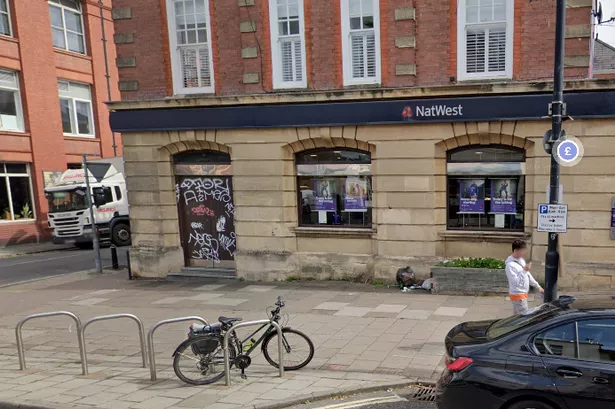Financial experts debated the 'ugly truth' about the UK's slow reaction to the climate emergency at a Blue Earth Summit based in Bristol. Rhian-Mari Thomas, chief executive of the Green Finance Institute, said mainstream financial institutions are “starting to recognise that the transition towards to a net-zero future and a nature-positive future is inevitable because it’s based on science”.
Speaking at the summit on Wednesday, Ms Thomas discussed net-zero progress in the sector alongside business leaders from firms like EY, Deloitte and NatWest. “This is not mainstream yet,” she said. “It is still a nascent industry but there are so many people who are focused on this, who have realised that they need to have a strategy, and they need to start operationalising.”
She added: “All the main financial institutions have signed up to net-zero targets by 2050 and so are going to have to transition and start pivoting their businesses. So I’m starting to have conversations with mainstream financial organisations who are saying: ‘Actually we’re starting to take a slightly different view of the risk we’re willing to take, we’re starting to shift our risk appetite a little bit if something is green versus if it isn’t’.”
READ MORE:Map shows Bristol areas most at risk from extreme heatwaves due to climate change
You can read more climate emergency stories here
It comes after Prime Minister Rishi Sunak announced a slowdown to the pace of UK net-zero initiatives, prompting concerns about business and investment uncertainty.
Rob Doepel, managing partner for sustainability at EY, told the event: “We’re in an international race for capital. We have a lot of competing geographies for that capital so it’s important from a UK perspective to think how do we make sure we have that capital here in the UK,” he added.
Ms Thomas also warned that the UK must stay in the race for green investment as China, the US and the EU push ahead, adding that net-zero must not become a “political football”.
“We have the deepest pools of institutional capital in the world, we have a world-leading capital market, we have an opportunity to actually make sure we are at the forefront of actually capitalising private capital by using Government money (and) Government regulation in a smart way,” she said.
“We have the opportunity to attract those jobs and prosperity to the UK. We really cannot afford in the next year to have this agenda be turned into a political football.
“It is based on science, it is inevitable and the UK needs to be at the forefront of it.”
On businesses collaborating with scientists, she said: “Hearteningly we are seeing a number of organisations bringing in climate scientists as advisers and actually either advising their board or coming into the organisation themselves because it is so critical.
“It is becoming more and more embedded but it needs to be done proactively. It is not going to happen by osmosis.”
Meanwhile, Bevis Watts, chief executive of the UK branch of Dutch ethical bank Triodos, also described the UK financial sector as being “at a nascent phase” when it comes to the green transition.
He said: “There is the good, there is the bad, there is greenwashing, there are people who are presenting things as game changing, delivering things that frankly aren’t that useful or shifting on what we’ve historically done. The ugly truth in it to me is that we are so slow to address it in the financial sector.”
He called for more red lines and regulation around banking rather than simply taking a risk management approach.
Mr Watts added: “We try to be a reference point to prove this can be different, that you can run a profitable growing successful business with 22 billion assets under management and three quarters of a million customers to try and say to the wider sector that there is a different model.”





















